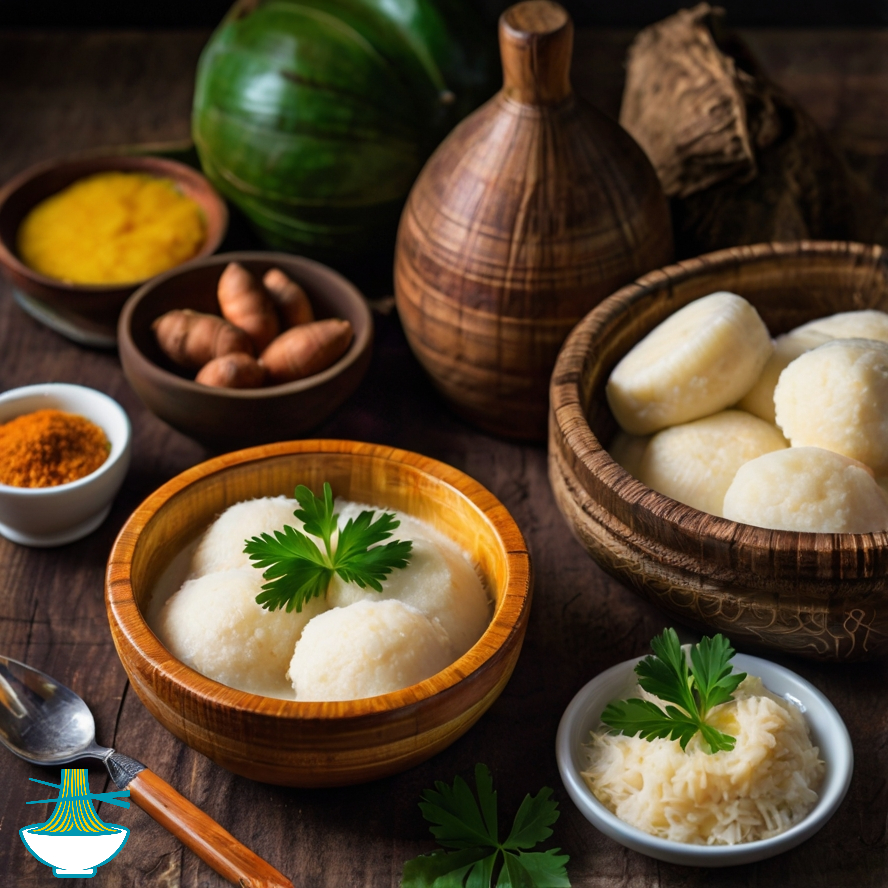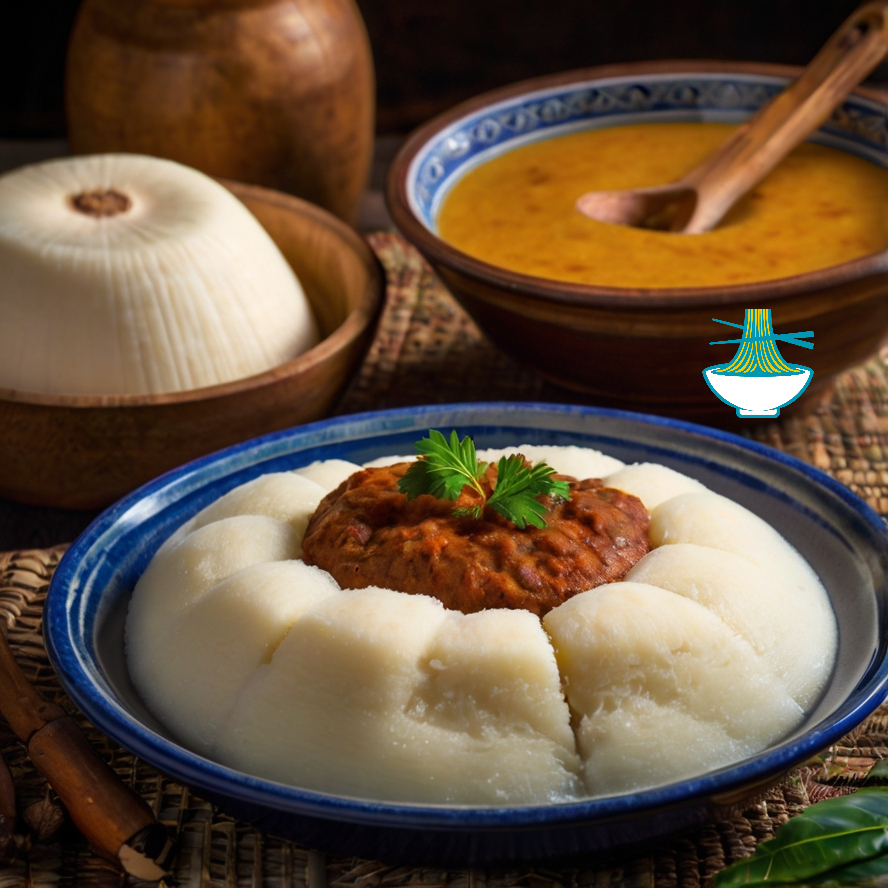Discover how to make Fufu, a beloved African staple, with our easy recipe. Fufu is a starchy dish made from cassava, yams, or plantains, pounded into a smooth, dough-like consistency. Perfect as a side or base for soups and stews, this versatile recipe will guide you through the process of preparing this essential dish in your kitchen.
Ingredients:
- 2 large cassava roots, yams, or plantains (or a combination of any)
- Water (for boiling)
- Salt (optional, to taste)
Instructions:
Prepare the Ingredients:
- Peel the cassava, yams, or plantains. For cassava, be sure to remove the tough outer skin and the fibrous core.
- Cut the peeled ingredients into chunks for even cooking.
Boil:
- Place the chunks in a large pot and cover with water. Add a pinch of salt if desired.
- Bring to a boil over medium-high heat. Reduce heat and simmer until the chunks are tender (about 20-30 minutes).
Drain and Cool:
- Drain the cooked ingredients and let them cool slightly.
Pound:
- Transfer the chunks to a mortar and pestle or a large bowl if using an electric mixer.
- Pound or mix until smooth and dough-like. If using a food processor, process in batches to achieve the desired consistency.
Shape:
- Shape the pounded mixture into a smooth, round ball or loaf. It should be soft and pliable.
Serve:
- Serve Fufu with your favorite African soups, stews, or sauces.
Enjoy this traditional African dish that's perfect for soaking up flavorful sauces and soups!
Nutritional Values
Cassava
- Calories: 160
- Carbohydrates: 38 grams
- Protein: 1.4 grams
- Fat: 0.3 grams
- Fiber: 1.8 grams
- Vitamin C: 20.6 mg (34% DV)
- Potassium: 271 mg
Benefits:
- High in carbohydrates, providing a good source of energy and helping maintain stamina.
- Rich in vitamin C, which supports immune function and skin health.
- Low in fat, contributing to heart health and weight management.
- Good source of fiber, aiding digestion and maintaining a healthy gut.
Yams
- Calories: 118
- Carbohydrates: 27 grams
- Protein: 1.5 grams
- Fat: 0.2 grams
- Fiber: 4.1 grams
- Vitamin C: 17.1 mg (19% DV)
- Potassium: 816 mg
Benefits:
- High in fiber, promoting digestive health and helping regulate blood sugar levels.
- Rich in potassium, supporting cardiovascular health and balancing electrolytes.
- Contains vitamin C, boosting the immune system and improving skin health.
- Low in fat, aiding in maintaining a healthy weight and supporting heart health.
Plantains
- Calories: 122
- Carbohydrates: 31 grams
- Protein: 1.3 grams
- Fat: 0.4 grams
- Fiber: 2.3 grams
- Vitamin A: 1124 IU (22% DV)
- Vitamin C: 20.6 mg (34% DV)
- Potassium: 499 mg
Benefits:
- High in vitamins A and C, enhancing vision, supporting immune function, and promoting skin health.
- Rich in potassium, which helps regulate blood pressure and supports heart health.
- Good source of carbohydrates, providing a steady source of energy.
- Contains fiber, aiding digestion and maintaining a healthy gut.
Each ingredient in Fufu provides essential nutrients that support overall health and wellness, making it a valuable addition to a balanced diet.


Comments